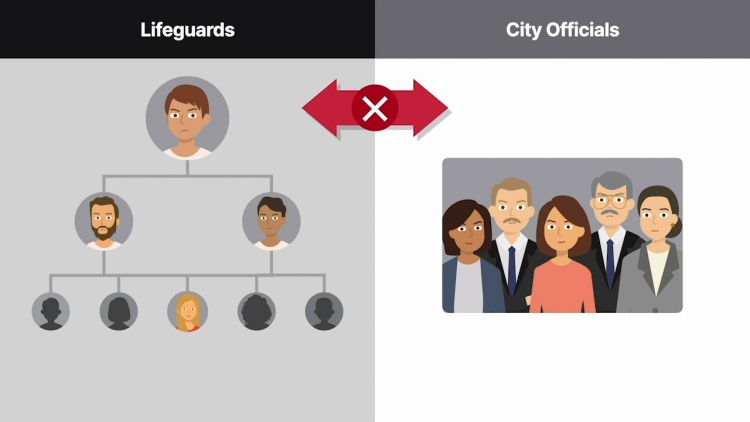Faragher v. City of Boca Raton
United States Supreme Court
524 U.S. 775 (1998)
- Written by Serena Lipski, JD
Facts
Beth Ann Faragher (plaintiff) worked as an ocean lifeguard for the city of Boca Raton (the city) (defendant) from 1985 to 1990. Bill Terry (defendant), David Silverman (defendant), and Robert Gordon were her supervisors. Terry and Silverman made lewd remarks to Faragher and other female lifeguards and subjected them to offensive and uninvited touching. Terry said he would never promote a woman to lieutenant, and Silverman threatened Faragher with having to clean toilets for a year if she refused to date him. Faragher told Gordon about her treatment, but Gordon did not report Terry’s and Silverman’s conduct to anyone. As an ocean lifeguard, Faragher worked at the beach and did not have contact with other city management. The city had no way for lifeguards to report sexual harassment without involving their direct supervisors. The supervisors of ocean lifeguards had virtually unchecked authority over them. The city made no effort to disseminate its sexual-harassment policy to beach employees. Faragher sued Terry, Silverman, and the city in federal district court for sexual harassment under Title VII of the Civil Rights Act of 1964, seeking nominal damages, costs, and attorneys’ fees. The trial court held Terry and Silverman liable and the city vicariously liable. The appellate court reversed in part, holding that the city was not vicariously liable for Terry’s and Silverman’s harassment, because they were not acting within the scope of employment. Faragher sought certiorari to the United States Supreme Court.
Rule of Law
Issue
Holding and Reasoning (Souter, J.)
What to do next…
Here's why 907,000 law students have relied on our case briefs:
- Written by law professors and practitioners, not other law students. 47,100 briefs, keyed to 996 casebooks. Top-notch customer support.
- The right amount of information, includes the facts, issues, rule of law, holding and reasoning, and any concurrences and dissents.
- Access in your classes, works on your mobile and tablet. Massive library of related video lessons and high quality multiple-choice questions.
- Easy to use, uniform format for every case brief. Written in plain English, not in legalese. Our briefs summarize and simplify; they don’t just repeat the court’s language.







